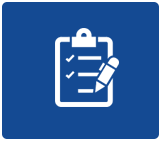Food legislation and own-check


What does the law say?
Anyone in charge of a food business must ensure that all necessary measures and procedures are in place in order to eliminate possible risks of food poisoning and that all employees are instructed about food safety risks and how to eliminate them.
In the EU there are certain common principles and requirements regarding food operation that must be fulfilled by food operators in all member states (mainly this is stated in the regulation 178/2002 and the regulation 852/2004). In addition to EU legislation, in each member state there are local laws and regulations regarding food safety. In Finland food safety is mainly regulated by the Food Act (23/2006). In addition, there are several different acts and decrees that regulate food handling, storage, transportation, sale and serving (those can be found at the Finnish database of Finnish acts and decrees www.finlex.fi).
The Food Act concerns all foodstuffs and all food operators in the food chain. According to the Food Act, every food operator is obliged to provide food suitable for human consumption complying with the food safety legislation. Food operators are also obliged to prevent the spreading of food borne diseases and eliminate other food related health hazards. The ultimate responsibility for product safety always lies with the food operator.
Food business operator obligations
Instruction duty
According to the regulation 852/2004 of the European Parliament and of the Council on the hygiene of foodstuffs ‘food business operators are to ensure that food handlers are supervised and instructed and/or trained in food hygiene matters commensurate with their work activity.’
This requirement concerns all employees working on food premises, including those who are not directly working with foodstuffs, such as the cleaning and service personnel.
Duty to ensure hygiene proficiency
It is the duty of food business operators to ensure that employees handling unpackaged perishable foods have a competence certificate approved by the Finnish Food Authority Ruokavirasto, which demonstrates their competence in food hygiene, if the employees have worked in one or several food premises and handled unpackaged perishable foods for a total of at least three months (see the Food Act 23/2006). Three months are calculated as a cumulative period starting from the first employment where a food business employee has handled unpackaged perishable foodstuffs. If an employee has changed jobs, the three-month period is calculated from the first employment onwards (the term must not be reduced to zero at the start of each new employment). An employee who is required to have a hygiene passport must present to the business operator any of the two original parts of his/her hygiene passport (either the hygiene proficiency certificate or the proficiency card). Photocopies of the original hygiene passport must not be accepted. The hygiene passport must be obtained in Finland, passports or certificated from other countries are not accepted.
Records to be kept
As a part of the own check procedures, food business operators must keep the records regarding food hygiene competence of their employees. The control authorities may request these records and if this happens, the records must be presented.
The record keeping can be fulfilled, for example, by storing the copies of the presented hygiene passports or by keeping a database of persons required to have a hygiene passport and those who have presented their original passports.
What is own-check?
Food business owners/operators are always responsible for the food that they produce, refine and distribute. They must also be aware of the hazards and risks associated with food handling and typical for their business, in particular. Food business owners/operators must ensure that physical, chemical and microbiological qualities of the foodstuffs are not hazardous for human consumption.
The essence of own-check is in identifying and listing all critical points (hygiene risks) in food handling related to particular food business and organising their regular supervision. In other words, own-check is a system that is aimed at helping a food business owner/operator to ensure the safety of the products they manufacture and sell to the consumers. As a result of correctly performed own check, food business operator will ensure that the food product and the production premises (or food premises), food handling process and all related activities meet the food safety requirements.
Own-check is mandatory for all operators involved in food handling including all the stages of the production chain (i.e. manufacturing, packaging, storing, import, export, marketing, transportation and serving). Own-check is mandatory for all operators irrespective of their size and the number of employees.
Own-check plan
To begin own-check planning it is good to identify hygiene risks and critical areas specific to the business in question. In order to do this a method called Hazard Analysis Critical Control Point (HACCP) can be of help. HACCP is a systematic approach that helps identifying, evaluating, and controlling food safety hazards based on the following seven principles:
Principle 1: Conduct a hazard analysis.
Principle 2: Determine the critical control points.
Principle 3: Establish critical limits.
Principle 4: Establish monitoring procedures.
Principle 5: Establish corrective actions.
Principle 6: Establish verification procedures.
Principle 7: Establish record-keeping and documentation procedures.
Own-check plan must be prepared in a written form and must always include the following stages of food operations:
- Control of incoming goods
- Control of production and storage facilities
- Personnel hygiene training and hygiene practices
- Health care
- Waste disposal plan
- Cleaning plan and schedule
- Instructions for possible cases of pest infestations
- Instructions for possible cases of food poisonings
- Recalling possibly hazardous products
All employees working on food premises must be familiarized with the realisation of own-check plan. Everyone working on food premises must follow the plan. Implementation of the own-check plan must be recorded to demonstrate that the plan is adhered to. Records of control and monitoring data must be taken and kept for at least one year. In case of any changes in product offering or business operations, these changes should be updated in the own-check plan.
The supervisory authority for food premises may organise control visits to monitor the realisation and the sufficiency of the own-check plan of a food business operator. Supervisors may give advices in certain issues related to proper application of the food legislation, but they do not offer detailed guidance on how food business operator’s activities should be organised in order to be compatible with the law.
